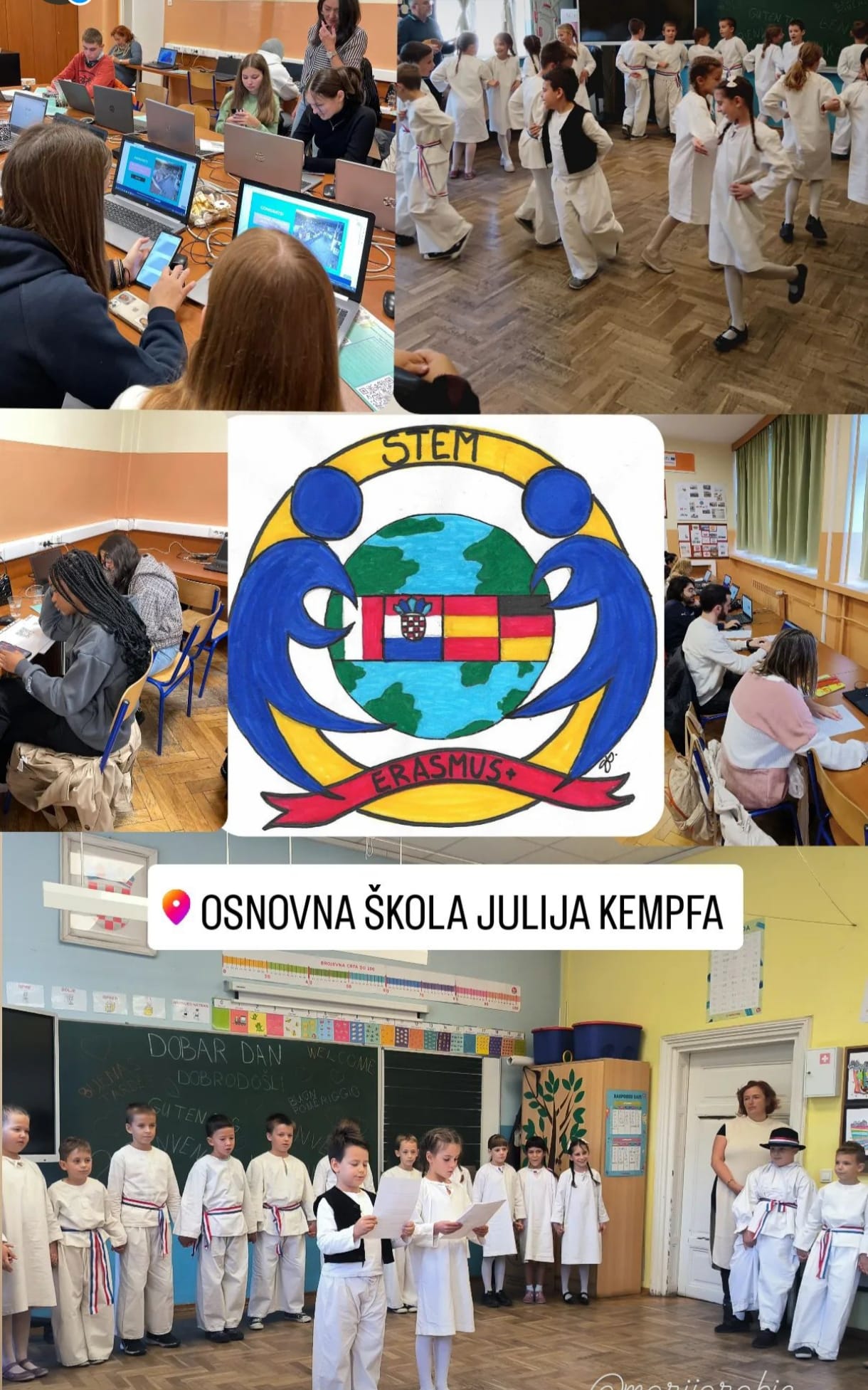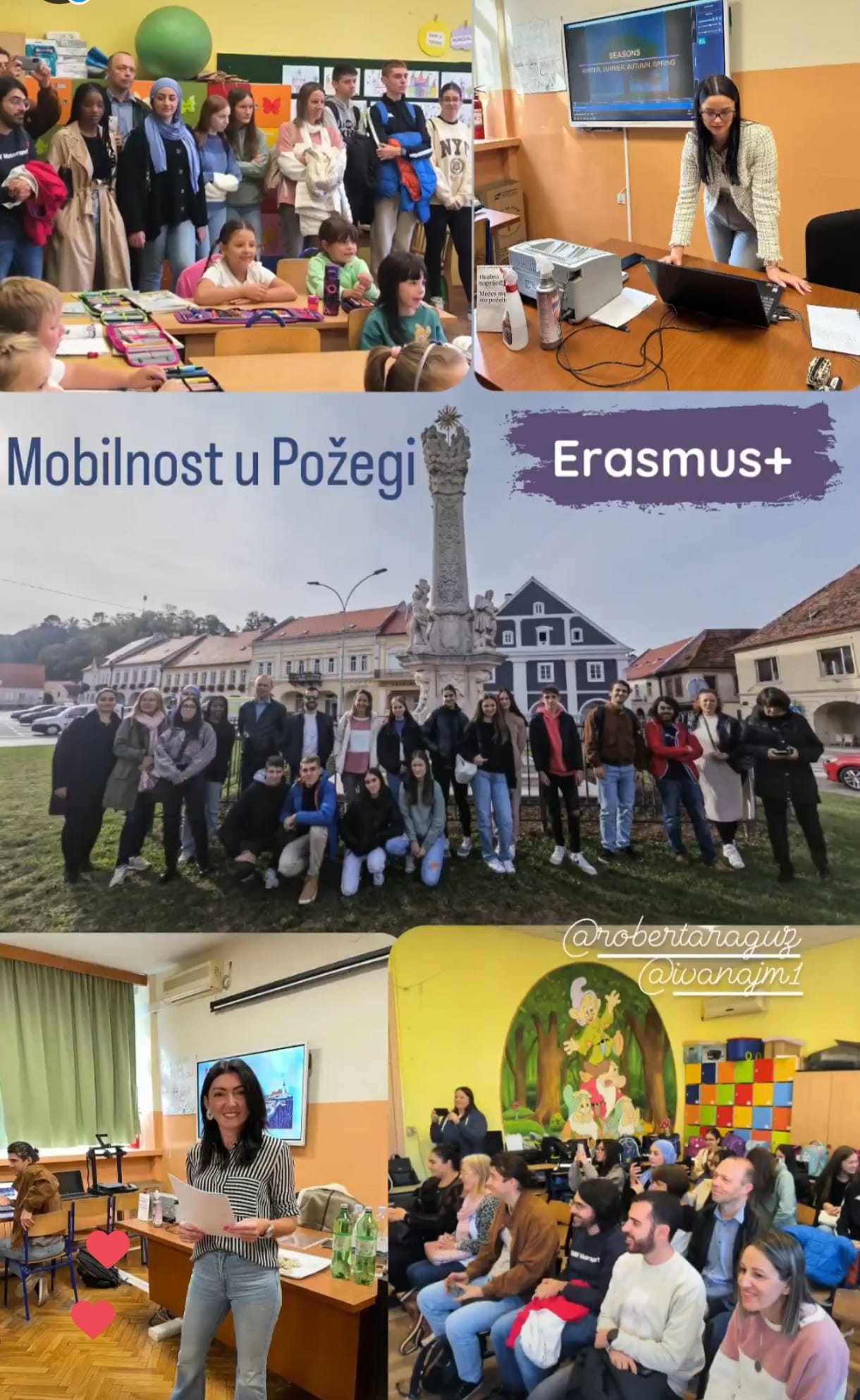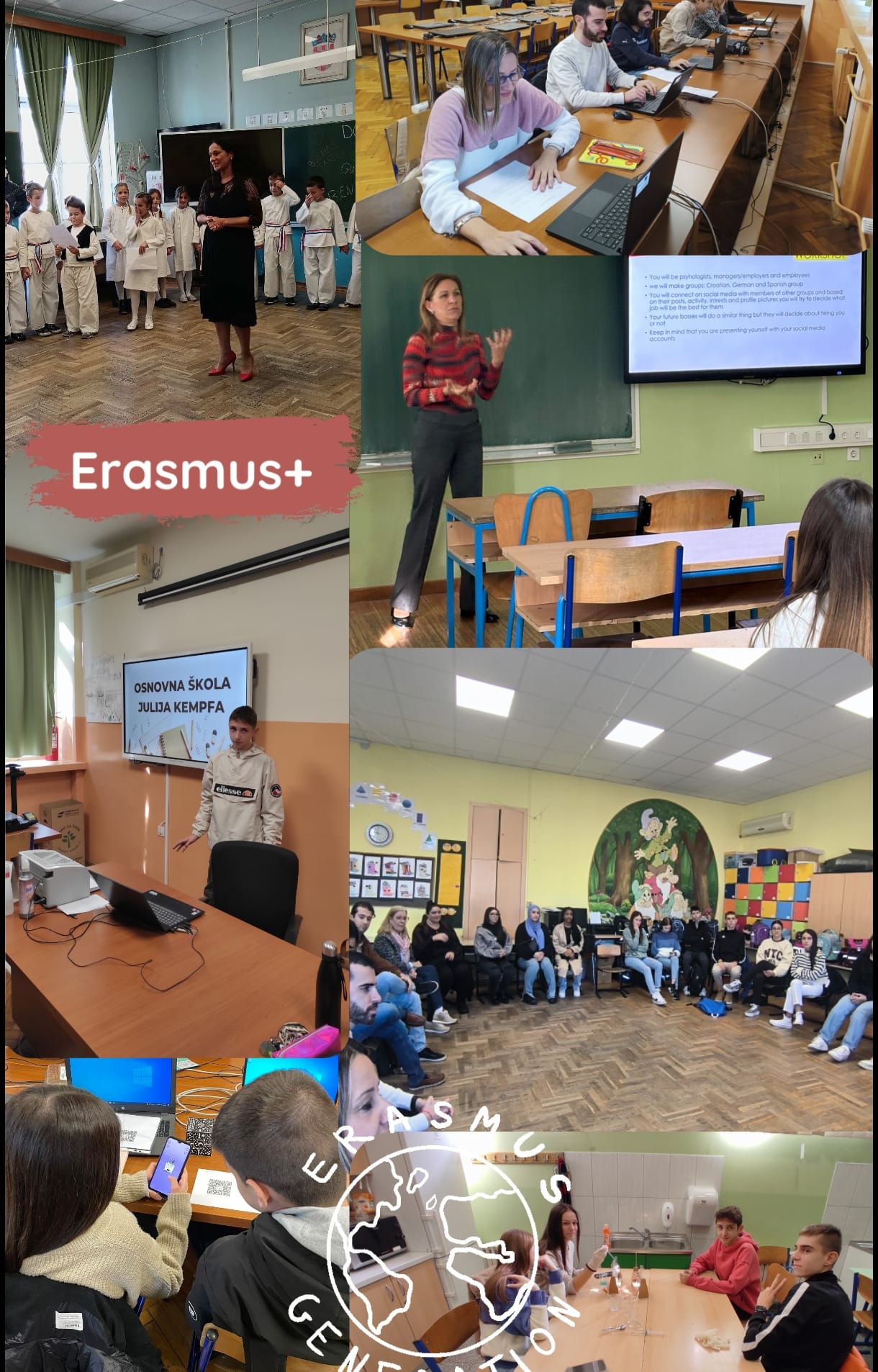Osnovna škola Julija Kempfa Požega


| « Kolovoz 2024 » | ||||||
| Po | Ut | Sr | Če | Pe | Su | Ne |
| 29 | 30 | 31 | 1 | 2 | 3 | 4 |
| 5 | 6 | 7 | 8 | 9 | 10 | 11 |
| 12 | 13 | 14 | 15 | 16 | 17 | 18 |
| 19 | 20 | 21 | 22 | 23 | 24 | 25 |
| 26 | 27 | 28 | 29 | 30 | 31 | 1 |
| 2 | 3 | 4 | 5 | 6 | 7 | 8 |
OŠ JULIJA KEMPFA
Dr. Franje Tuđmana 2, 34000 Požega
OIB: 66604281111
Matični broj: 3351092
E-mail: skola@os-jkempfa-pozega.skole.hr
Telefon: 034 273 799
Fax: 034 312 826
LOKALI:
511 – Tajnica
512 – Ravnateljica (272 046)
513 – Zbornica
514 – Pedagog
515 – Računovodstvo
516 – Knjižnica
517 – Kuhinja (272 015)
519 – Domar
520 – Defektolog
521 – Psiholog (312 827)







web: https://www.besmart-project.eu/home
USING MOBILE PHONES AS A TOOL TO IMPROVE STEM SKILLS
One of the main motivations behind the project is to improve the innovation capacity of schools and to fully exploit the potential of digital technologies and content. With this in mind, we developed the idea that we will implement over the next 2 years. The introduction of 'Science education for Responsible Citizen Report' reads: "Science education, innovation and good practices should become more responsive to society's needs and ambitions and reflect its values. They should support people of all ages and talents in developing positive attitudes towards science. We need to find better ways to cultivate students' curiosity and cognitive resources. We need to improve the educational process to equip future researchers with the necessary knowledge, motivation and sense of social responsibility to actively participate in the innovation process'.
Reading this document gave us the cue to try to change young people's attitude towards science through the use of the most popular digital tool: the smartphone. The structural shortage of science labs and instruments in most schools has led us to consider BYOD as the only alternative to expensive science labs: an internet connection and a mobile phone are not just for taking photos and videos for instagram, or watching the YouTube channel of one's favourite celebrity. Nowadays, mobile phones are equipped with operating systems with impressive computing capabilities. We believe that, as teachers, our most important task is to educate young people, passive users of technological tools, to use them more consciously. The activities we propose, therefore, do not focus on the risks but on the great potential in the use of smartphones in classrooms.
We planned and developed this transnational project to enable teachers and students to work together within learning contexts and teaching, both national and international, sharing expertise and comparing the respective methodologies adopted in the classrooms. In this way, all participants involved will have the opportunity to become more proficient and self- aware in language, social, digital and scientific (and other) skills. Running science experiments in the classroom with smartphones will also make STEM disciplines more attractive to female students: according to the UNESCO report Cracking the code: Girls' and women's education in STEM', only 30% of students choosing science faculties are women. This gender gap is alarming, especially since STEM careers represent the future. The aim is to change students' views from simple users to active creators and critical thinkers.
The main objectives on which we based our project are related to ET 2020:
-Developing innovation and creativity in the teaching and learning of STEM subjects
-Improving the quality and efficiency of education
-Encouraging the values of European citizenship and learning mobility
SPECIFIC OBJECTIVES:
STUDENTS
-stimulating students' active involvement in STEM subjects, in particular by raising awareness of the
importance of STEM education for GIRLS
-promoting meaningful learning, fostering cooperation and collaboration
-promoting the conscious and critical use of digital devices, exploring their potential
-motivating the learning of basic scientific knowledge
-stimulating logical skills, creative problem-solving and critical thinking
-building young people's key competences, basic skills or language and IT skills
-promote tolerance, respect and understanding of other cultures
SCHOOL STAFF
-motivating teachers to enrich their methodological and practical expertise on STEM teaching
-knowing the curricular aspects of partner countries
- increasing English and digital literacy
-promoting intercultural dialogue
-increasing the desire to learn and curiosity, motivation and self-confidence
The partner will engage in a shared collaborative approach when delivering the planned project activities, objectives and results. The project will see approximately 180 staff and pupils engaged in 5 mobilities in Germany, Spain, Croatia, Italy over a period of 2 years.
Through this project we want to:
-to design an innovative curriculum in the disciplines
STEM
-designing new and innovative ways of teaching science subjects, building a teaching methodology that helps teachers
acquire new skills
-documenting the dissemination phases of the results
-promote the involvement of families, local associations, municipalities, institutions and professionals
-promote and increase initiatives related to countering gender stereotypes in schools, specifically
those in which female students are less interested in STEM subjects than male students and, consequently:
-Improving participation, achievement and promoting female students' choice of STEM careers to reduce the gender gap.
RESULTS:
- Activities organised during the mobilities: training sessions, workshops, focus groups, class
laboratories, on the main and specific themes of the project involving students, teachers parents and
educators/operators
- 4 mobilities (3 for lecturers and students and one kick-off for lecturers)
-1 Science Fair
- Peer tutoring
- 1 eTwinning project (1 per project year)
- A website
- Newsletters and flyers
- Logo competition
- YouTube channel and project social page



Partners
Sophia srls ITALY
IES MANUEL SANCHIS GUARNER SPAIN
Osnovna skola Julija Kempfa Pozega CROATIA
Berufskolleg Rheydt-Mülfort für Wirtschaft und Verwaltung
GERMANY